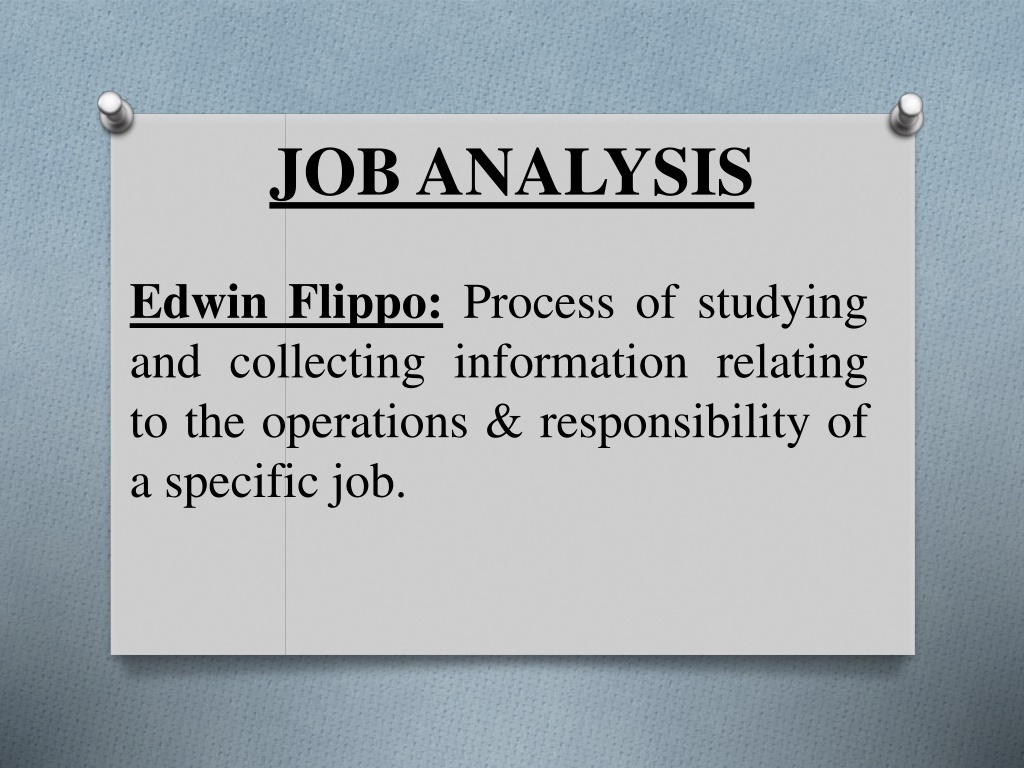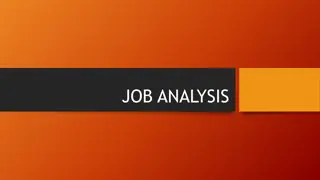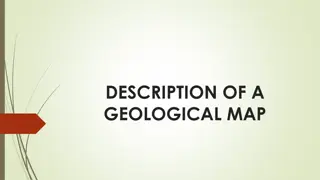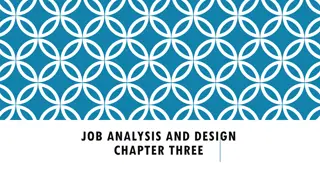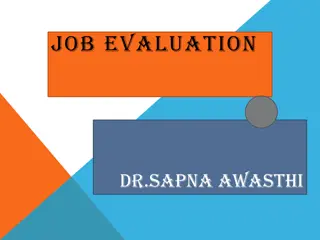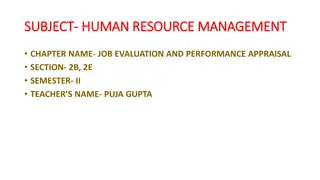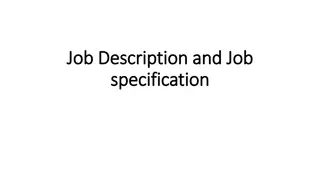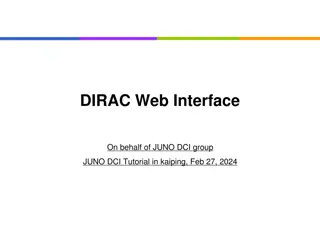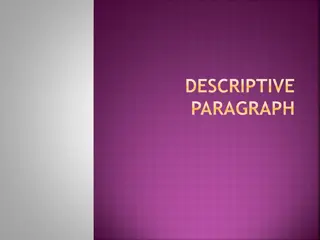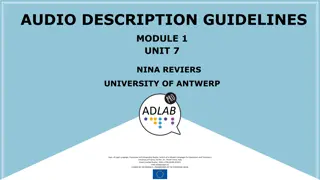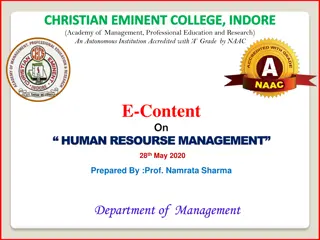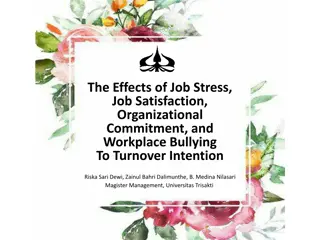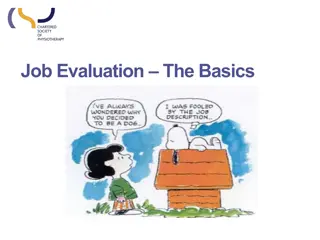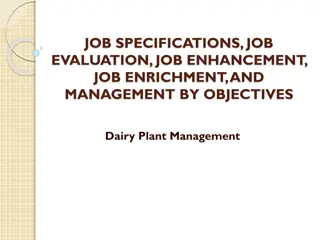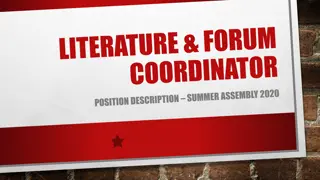Understanding Job Analysis and Job Description
Job analysis, as defined by Edwin Flippo, is the process of studying and collecting information about the operations and responsibilities of a specific job. This crucial task involves various components such as creating a detailed job description outlining the job title, qualifications, and more. Ensuring a thorough job analysis and description is essential for effectively managing and structuring roles within an organization.
Uploaded on Nov 25, 2024 | 0 Views
Download Presentation

Please find below an Image/Link to download the presentation.
The content on the website is provided AS IS for your information and personal use only. It may not be sold, licensed, or shared on other websites without obtaining consent from the author. Download presentation by click this link. If you encounter any issues during the download, it is possible that the publisher has removed the file from their server.
E N D
Presentation Transcript
JOB ANALYSIS Edwin Flippo: Process of studying and collecting information relating to the operations & responsibility of a specific job.
Components of Job Analysis JOB DESCRIPTION JOB DESCRIPTION O Job title Qualifications O Job location Experience O Job summary Training O Working conditions Skills O Reporting authority Responsibilities O Machines to be used Emotional Characteristics O Hazards Sensory demands O Duties & Responsibilities JOB SPECIFICATIONS JOB SPECIFICATIONS
Benefits of Job Analysis O Recruitment & Selection O Placement O Training & Development O Job Evaluation O Performance Appraisal O Promotion O Transfer O Career Planning & Development O Health & Safety O Redesign of a Job
JOB DESIGN Follows Job Analysis. Conscious efforts to organize tasks, duties & responsibilities into a unit of work to achieve certain objectives.
Factors affecting Job Design ORGANISATIONAL ORGANISATIONAL ENVIRONMENTAL ENVIRONMENTAL BEHAVIOURAL BEHAVIOURAL Tasks Flow of Work Work Environment Ergonomics Employee s Ability Cultural Factors Social Expectations Feedback Autonomy Use of Abilities Job offering varieties
Techniques of Job Design Job Enlargement Job Enlargement: Increasing number of tasks. Job Rotation Job Rotation Job Enrichment Job Enrichment: Increasing depth of Job.
JOB SIMPLIFICATION O BREAKING THE JOB INTO SMALL PARTS O SAME TASK IS GIVEN AGAIN AND AGAIN. O BENEFITS- O CLARITY OF PURPOSE O INCREASES EFFICIENCY O INCREASES PRODUCTIVITY O DEMERITS O BOREDOM O MONOTONY
JOB ROTATION O MOVING FROM ONE JOB TO ANOTHER O BENEFITS- O NO BOREDOM O SKILL IMPROVES O ALL ROUND DEVELOPMENT O COMPETENCY IMPROVES O DEMERITS O FRUSTRATION O INTERRUPTION IN JOB
JOB ENLARGEMENT O ADDING MORE TASKS TO EXISTING JOB O HORIZONTAL EXPANSION OF A JOB O SCOPE OF THE JOB INCREASES O MERITS O MONOTONY IS REMOVED O VARIETY OF TASKS ARE OFFERED. O EMPLOYEE S SKILL MULTIPLIES.
JOB ENRICHMENT O VERTICAL EXPANSION O MORE RESPONSIBILITIES AND VARITIES O AUTONOMY IN WORK O INCREASED MOTIVATION O JOB SATISFACTION
